Stormont's end of term report card - could do better?
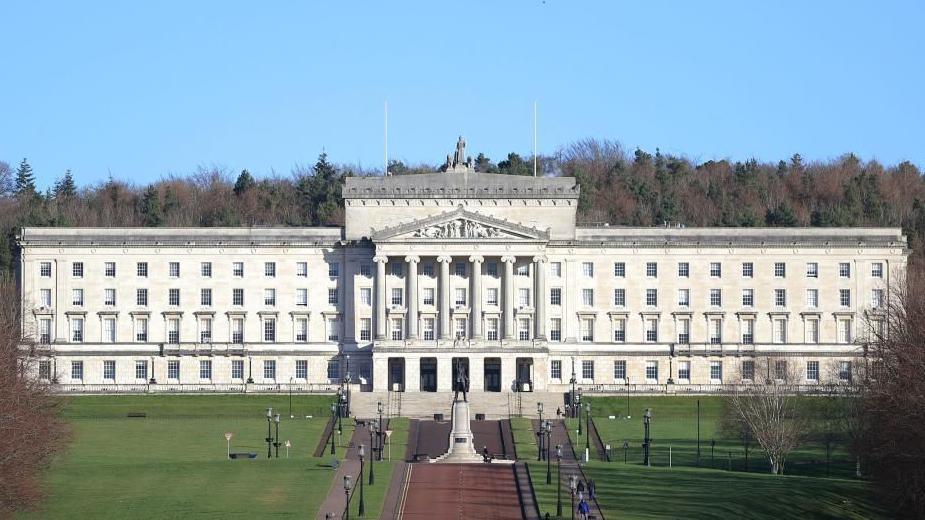
The Northern Ireland Assembly is now in summer recess
- Published
This week, with no fanfare, the Speaker of the Northern Ireland Assembly wrote to members informing them things were about to move up a gear.
Edwin Poots said a number of Executive Bills had been introduced over the past few weeks, which would change the focus of business in the second half of 2025 and reduce the time for Private Members' Motions.
In other words, Stormont would cease to be the meaningless talking shop many say it has become and look more like the legislative assembly it is supposed to be.
"About time", some critics will say. "Too little too late", others will chime.
When Stormont reached the first anniversary of its return following the two-year hiatus of the Democratic Unionist Party (DUP) boycott there was a little self-congratulation, but also the realisation that mere survival would no longer cut it.
In short, the honeymoon was over.
Almost immediately there was a marked rise in sharp exchanges across the chamber over issues like Casement Park and immigration.
But stasis is still the pervading feeling.
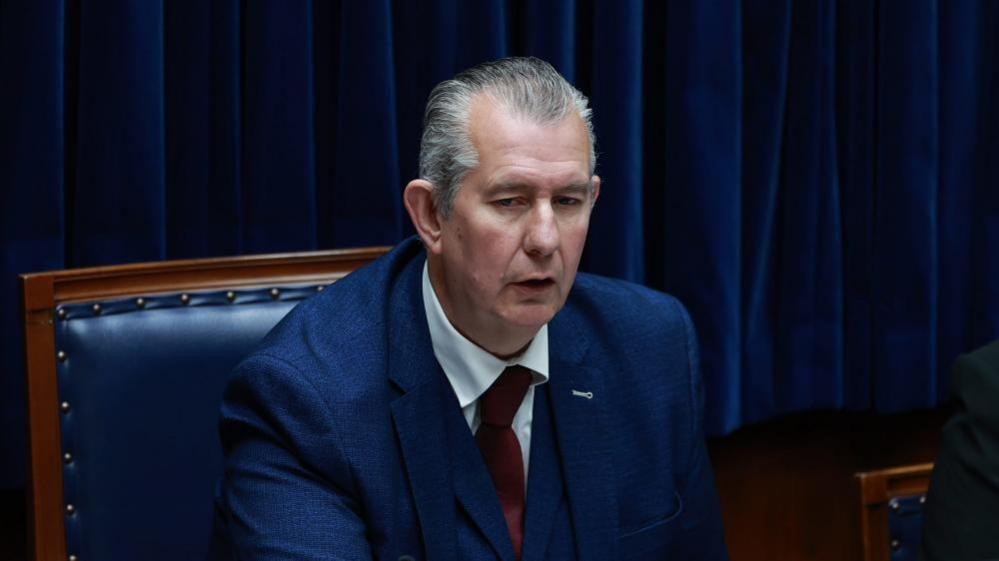
The Speaker said the second half of the year would have less time for Private Members' Motions.
Stormont's inability to get the big things done is embodied by a lack of movement over things like Casement Park (not entirely Stormont's fault, but undoubtedly now its problem) and the upgrading of the A5 - a major infrastructure project -hamstrung because it fell foul of Stormont's own climate change targets.
You could not make it up.
And even when the four-party executive manages to achieve what predecessors have failed to achieve it is seen by critics to fall short.
The first Programme for Government agreed in more than a decade was said to lack ambition.
It finally produced an Anti-Poverty strategy, albeit nearly 20 years late.
But instead of winning praise, a group of local charities say it was so flawed it was worse than no strategy at all.

The first and deputy first minister during an event to launch a regional change fund to support ending violence against women and girls
What has the executive achieved in its 500+ days back?
Apart from still being there...
In no particular order:
A total of £688m allocated for public sector pay
An extra £1.3 billion secured through successful negotiations with the Treasury
A £25m plan for a new Childcare Subsidy Scheme
A strategic Framework to End Violence Against Women and Girls
But still, Stormont's capacity to achieve defeat from the jaws of victory was encapsulated by the gleaming new edifice known as Belfast's Grand Central Station - all £340m of it.
No sooner were the parties basking in the reflected glory than the DUP and Sinn Féin were at each other's throats over a plan by the Sinn Fein Infrastructure Minister Liz Kimmins to introduce Irish language signage.
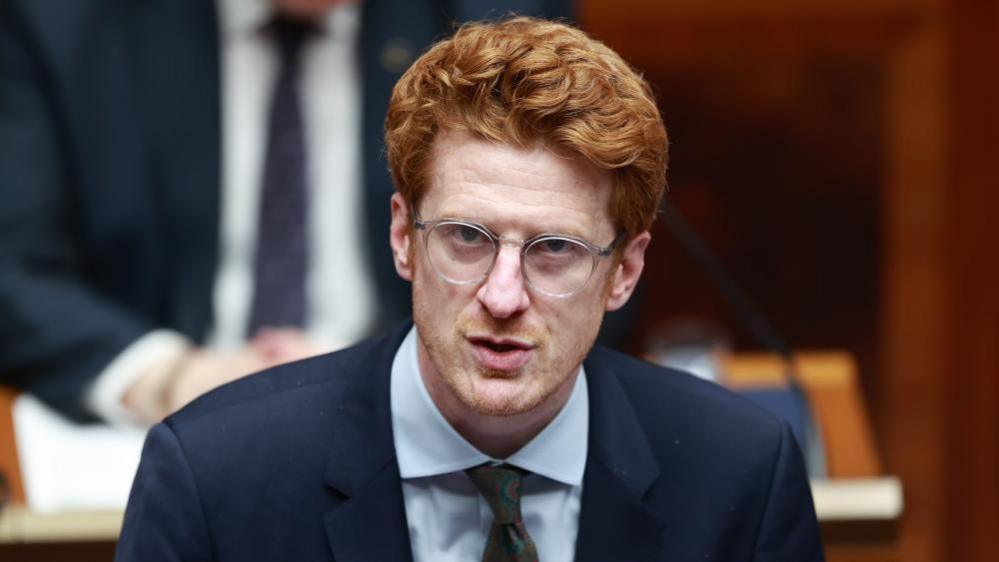
Leader of the opposition, Matthew O'Toole, criticised the first minister over the executive's record
This week at her final first minister's questions of this term Michelle O'Neill and the Social Democratic and Labour Party's leader of the opposition Matthew O'Toole clashed over what had - and had not - been achieved.
O'Toole told her: "With respect, first minister, staged photo ops and platitudes are not enough anymore. You are, with respect, an elected leader, not a royal.
"You are blaming others when your ministers have failed to do the basics.
"If the government in Dublin had the delivery record of the government that you lead here, your party would have, rightly, roasted them."
She countered: "I have heard the member at this all day. He talks flippantly about an end-of-term report.
"Well, let me tell you about your end-of-term report.
"I have heard three things from the now funded and resourced opposition. I repeat: the funded and resourced opposition.
"The three things that I have heard are negativity, negativity and negativity."
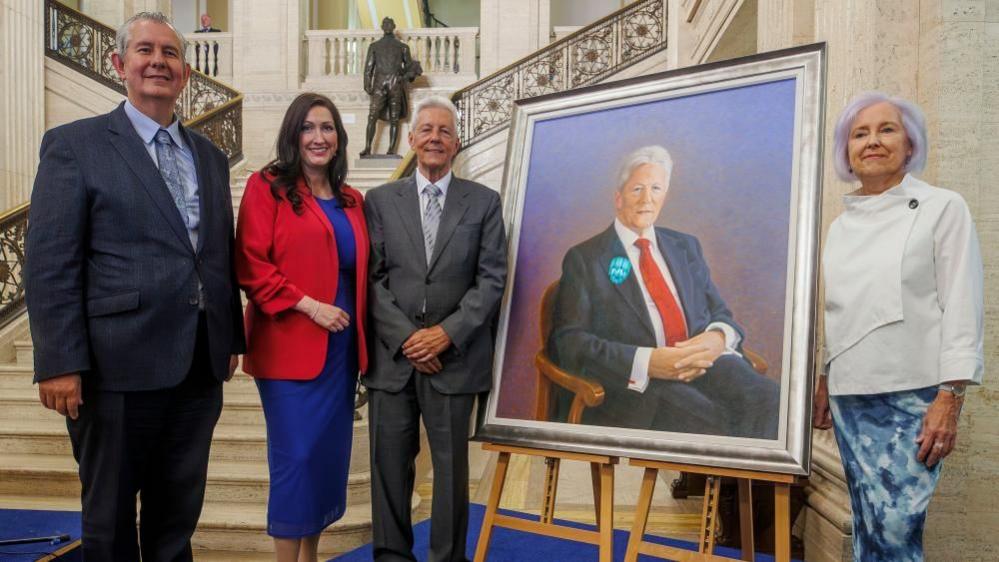
Former DUP First Minister Peter Robinson returned recently to unveil his portrait
When the former DUP First Minister Peter Robinson returned recently to unveil his portrait in the Great Hall he gave a more optimistic prognosis from the outside.
"It almost seems normal around here," he said.
"Obviously more can be done and as a small country you should be able to turn things around more quickly.
"The fact that you have roughly the same composition of government means you should be able to have more long term planning because you're not moving from one government to a different government."
At least it's a variation on the "what can you do in a four-party coalition comprised of parties with competing agendas?" argument.
But, as Speaker Poots reminded MLAs this week, when they return from summer recess there will be little more than 18 months before the Assembly dissolves for the next election.
And you know what elections can mean for inter-party relations.
Related topics
- Published3 February
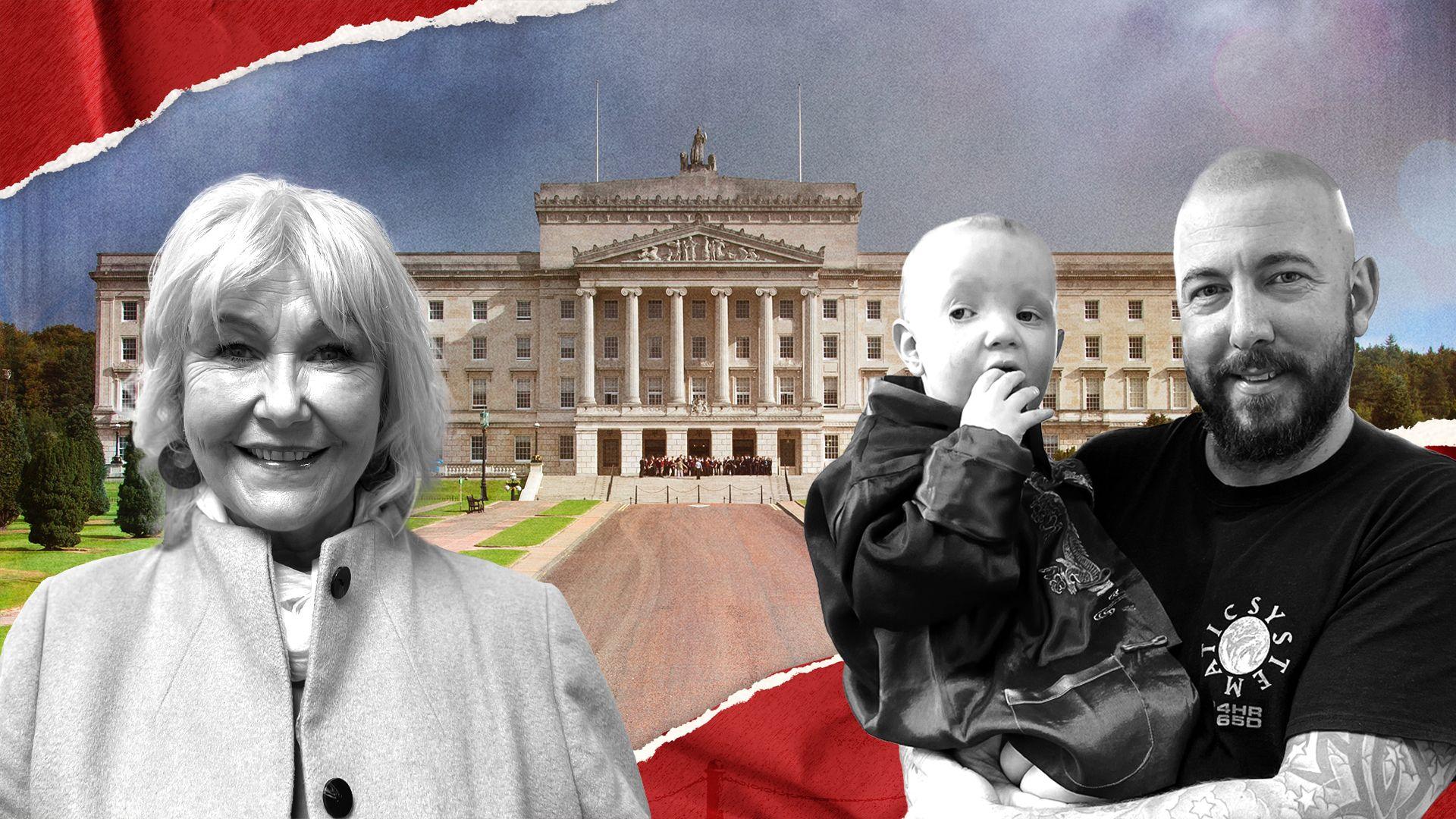
- Published3 February 2024
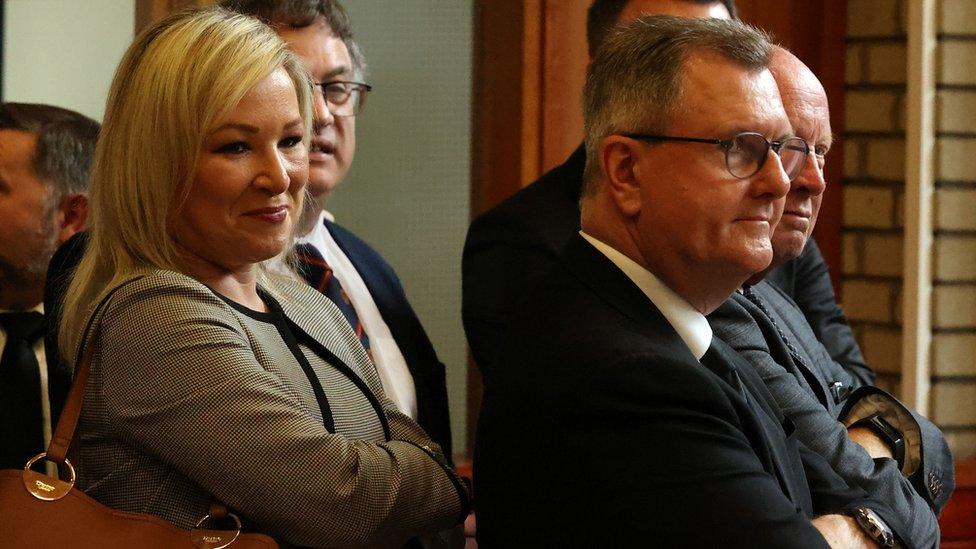
- Published3 August 2024
